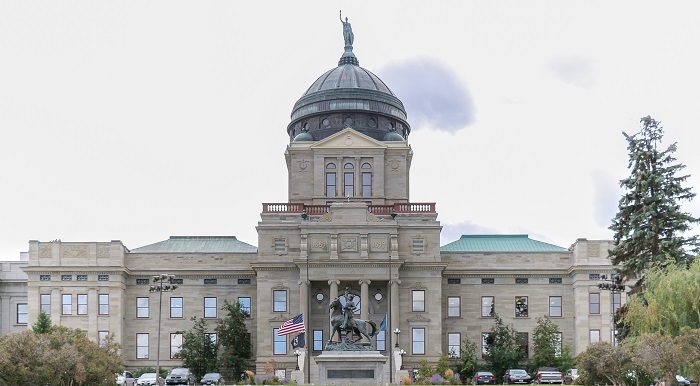Editors note: the following is a letter from Great Falls City Commissioner Joe McKenney to the Great Falls Association of Realtors and Montana Association of Realtors.
Overview
The purpose of this memorandum is to express strong opposition to HB20 from a public safety perspective. This bill proposes changing voted levies from being stated in mills to a dollar amount and subjects voted levies to the calculation provisions of 15-10-420, MCA. While the intent may be to simplify the levy process, the bill creates unintended consequences that undermine local government autonomy, threaten the ability to fund essential services, and introduce a flawed methodology that disadvantages both taxpayers and municipalities.
Unintended Consequences
- Inflexibility in Revenue Generation
- By requiring levies to be stated in dollar amounts rather than mills, HB20 removes the flexibility needed to adjust for taxable value changes. Since property values fluctuate, local governments must be able to adjust levies in mills rather than fixed dollar amounts to maintain stable revenue streams.
- Voter Confusion
- The bill’s approach forces levies to be framed in static dollar amounts, which may mislead voters into believing that funding needs do not change with economic conditions, inflation, or shifts in taxable property values.
Threat to Funding Essential Services
- Erosion of Local Budget Stability
- HB20 subjects voted levies to the constraints of 15-10-420, MCA, effectively capping revenue growth at an artificially low rate. This hinders local governments’ ability to provide consistent funding for public safety, infrastructure, and other essential services.
- Inability to Address Inflationary Costs
- The proposed structure does not account for inflationary pressures that drive up the costs of police, fire, emergency medical services, and critical operations that are property tax funded. Over time, the real value of collected tax dollars will decline, leading to public safety reductions.
- Challenges in Long-Term Planning
- Municipalities rely on predictable revenue streams to plan for long-term capital improvements and community growth. HB20 introduces volatility into local budgets, making it difficult to ensure continued investment in critical infrastructure projects.
Flawed Methodology
- One-Size-Fits-All Approach
- Local governments operate under widely varying financial conditions, and a rigid formula-based constraint on voted levies does not account for unique municipal needs, economic conditions, or unexpected expenditures.
- Reduction in Local Control
- The bill undermines the authority of locally elected officials to make necessary financial decisions for their communities. It limits flexibility in responding to economic downturns, changes in population, and infrastructure needs.
- Inconsistent with Existing Fiscal Policies
- The methodology outlined in HB20 conflicts with long-standing property tax structures that have allowed for gradual revenue adjustments based on local economic realities, potentially causing disruptions in municipal operations.
HB 20 Impact on Public Safety
The chart below illustrates the financial impact of HB20 on public safety funding, using firefighters as an example. Over a four-year period, the value of a mill naturally increases due to a 5% annual rise in taxable property values, ensuring that funding keeps pace with inflation and operational costs.
However, HB20 proposes fixing voted levies in dollar amounts rather than mills. If this system had been in place, the revenue generated for funding 10 firefighters would have remained static at $1,300,000 over the four-year period, despite rising costs and inflation. Without the ability to adjust for changing taxable values, local governments would face a shortfall in funding for essential fire services.
| 1st year | 2nd year | 3rd year | 4th year | |
| Voting on Mills | 5% increase in Mill Value* | 5% increase in Mill Value* | 5% increase in Mill Value* | |
| 10 Firefighters | $1,300,000 | |||
| Value of Mill | $132,152 | $138,759.60 | $145,697.58 | $152,982.46 |
| 10 Voted Mills | 9.84 | 9.84 | 9.84 | 9.84 |
| Amount raised | $1,300,000 | $1,365,394 | $1,433,664 | $1,505,347 |
| Voting on Dollar Amount | ||||
| 10 Firefighters | $1,300,000 | $1,300,000 | $1,300,000 | $1,300,000 |
| Mills ** | 9.84 | 9.37 | 8.92 | 8.5 |
| Difference in funding | $0.00 | $65,394.46 | $133,664.19 | $205,347.40 |
| Future layoffs due to Levy by dollar amount | 1 layoff | 2 + layoffs | ||
| * Average 7 Year mill value increase for Great Falls | ||||
| ** The “voting on dollar amount mills” decrease because as the mill value goes up, the City can only mill $1.3 million in dollars; resulting in a millage reduction. | ||||
HB20, while seemingly aimed at transparency, ultimately introduces unnecessary constraints that will disrupt local government funding, hinder the ability to provide essential services, and mislead voters about the financial realities of maintaining public safety.
Please urge the legislature to reconsider or amend this bill to ensure that municipalities retain the necessary flexibility to manage local finances effectively.
Recommendation: Oppose HB20 and support policies that enhance public safety, rather than defund public safety.
Joe McKenney
City Commissioner


